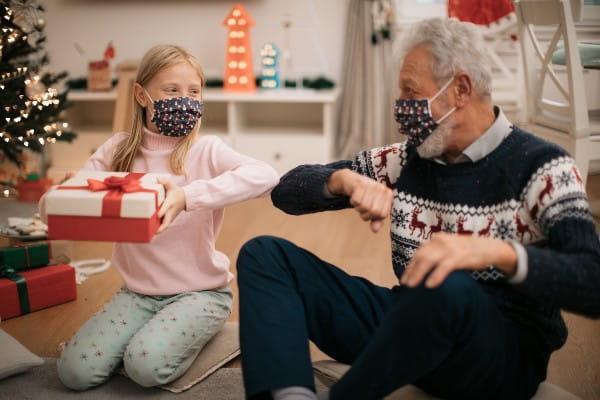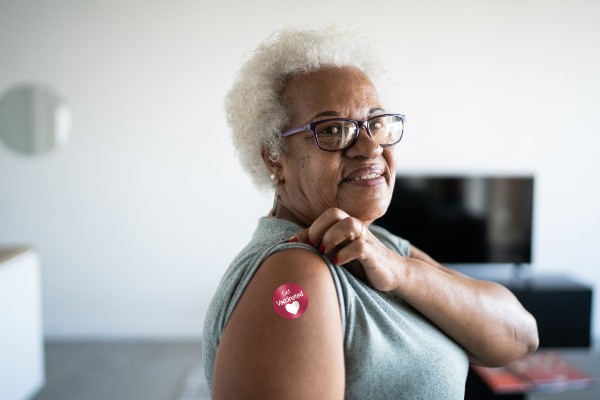If you test negative for COVID-19 to be sure you won’t expose your loved ones to the virus, you may feel ready to down some eggnog and give your secret Santa gift away. But, you may be still risking spreading more than holiday cheer at the next family party.
"This coronavirus can be silent for the first few weeks of infection. You can spread it to others before you test positive or even know you're sick. For instance, if you are exposed and infected with the virus on a Tuesday, you can still test negative on Thursday and pass it on to Grandma on Friday at your family holiday party. All, while you are unaware and symptom free," says Rebekah Sensenig, D.O., Infectious Disease Specialist with Riverside Health.
COVID-19 incubation timeline — holiday edition
DAY 1: Kathy was exposed to COVID-19 at work
DAY 5: Kathy felt good and tested negative before the family holiday party
DAY 7: Kathy enjoyed the holiday with 10 family members while contagious
DAY 10: Kathy develops symptoms and tests positive for COVID-19
Stay socially distant for the holiday season
With infection rates on the rise and cold temperatures driving activities indoors, it's more important than ever to stay vigilant with the CDC's social distancing guidelines.
According to the CDC, COVID-19 can present no symptoms for several weeks. In fact, it can even take that long to test positive for the virus after you’ve been exposed. Even if you feel fine and test negative for COVID-19 on December 23, on Christmas day you could still be infected and spreading the virus to those around you.
Similarly, people you come in contact with that are also symptom-free can be spreading the virus to you. Therefore, it's critical to take precautions for the entire holiday season. The best gift may be foregoing your usual family gatherings until the rates of infection are lower in your community.
Consider the guidelines when planning travel, gatherings and shopping trips
Whether you've decided to do holiday shopping or gather with family, following the CDC's guidelines for social distancing during your activity will lower the risk of spreading or catching the virus.
- Maintain a social distance of 6 feet among those not in your immediate household
- Wear a mask
- Practice frequent hand washing using warm water for 20 seconds or more
- Take activities outside when possible
- Increase ventilation during indoor activities by opening doors and windows (when weather permits) and placing heat/air on a continuous circulation
- Avoid crowds and crowded spaces
- Stay home if you have a fever or don't feel well, tell others to do the same
- Stay home and quarantine if you've been exposed to someone who tests positive for the virus
Use caution and be prepared, even for family gatherings
If you are getting together with family members that don’t live with you, don't let your guard down. Keep the gathering small and ask guests outside your immediate household to avoid contact with others 14 days before the event.
Plan ahead to ensure you have all the necessary supplies on hand to promote a clean and safe environment, including:
- Spare disposable masks
- Hand sanitizer
- Antibacterial wipes for hard surfaces
- Individually wrapped snacks
- Single-serve beverages
- Touchless garbage cans
Stay informed and adjust for success
It may be hard to adjust our traditional celebrations, but the safety of holiday activities is essential to ensure many more healthy and happy gatherings for those you love.
Related:
- Learn more about Rebekah Sensenig, D.O.
- Navigating COVID-19



